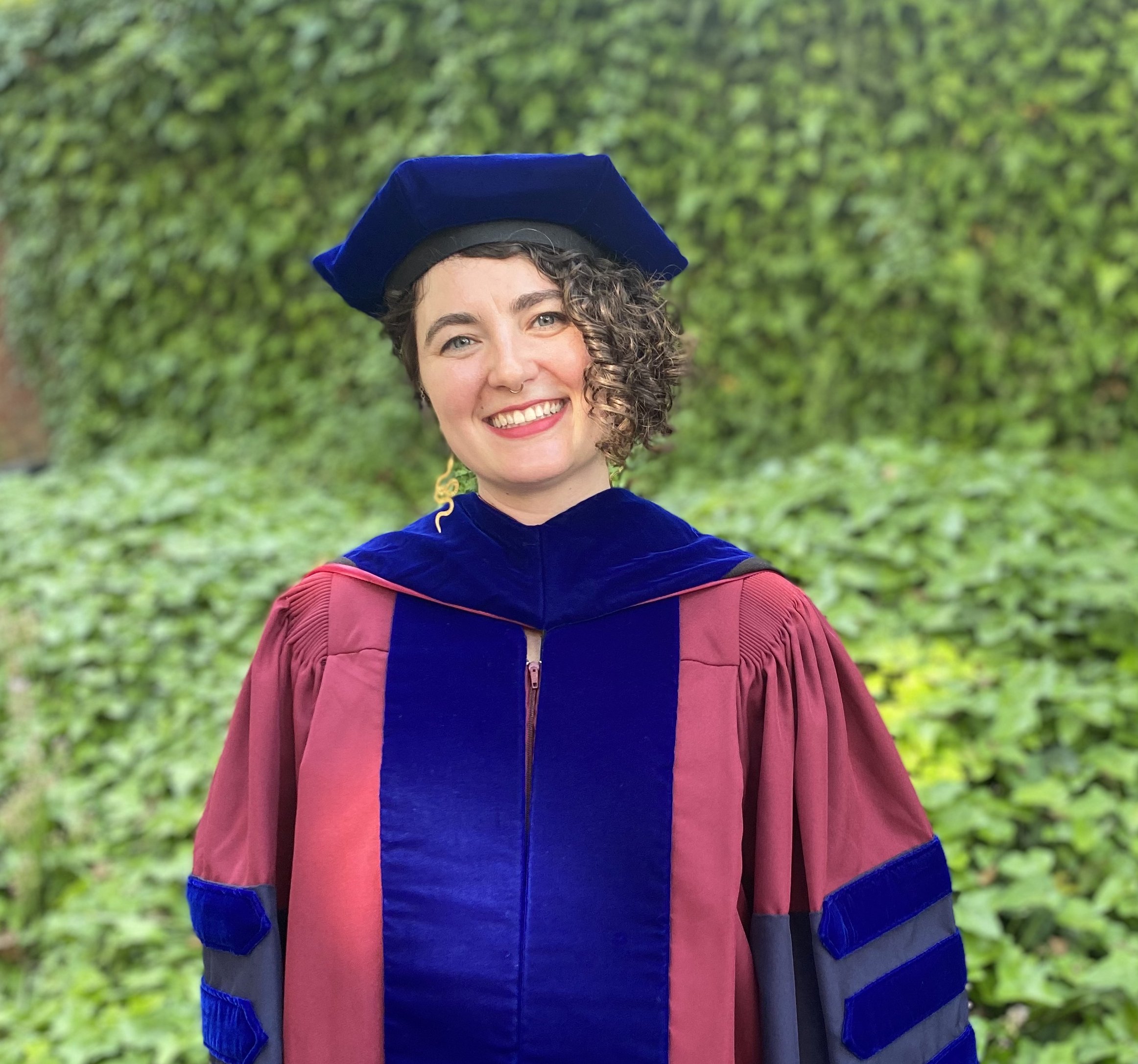Q&A with Alexandra Kralick
Welcome Alexandra Kralick, who is the inaugural GSL Postdoctoral Associate in Gender and Science, funded by the Robert Wood Johnson Foundation.
GSL: Congratulations, Alexandra! We’re thrilled to have you here. What are you most excited about in this new postdoc position?
I’m most excited to physically and intellectually be in a radically interdisciplinary and inclusive space committed to countering bias and hype in sex difference research. I think there is great value in working in a community of shared understanding and goals. I also really value producing popular media translated pieces for each of my scientific outputs and I am thrilled to produce these materials in collaboration with a lab group that has such a long and strong history of doing this. Mostly though, I’m just really looking forward to learning from everyone here and growing in this collaborative space as a scholar and a communicator.
GSL: How did you come to specialize in feminist science studies, gender/sex, and biology?
As an undergraduate researcher getting my B.S. in biological anthropology, I took Africana studies courses that introduced me to the ways in which science had been situated in structural violence and weaponized against marginalized folks. I wanted to find a way to do science that was critically reflective of the negative impact that hegemonic knowledge and implicit bias can have on our scholarship. I sought out a Ph.D. program that would support me in conducting science in conversation with social theory, and I found a four-field anthropology department where I could do just that. At Penn, I was able to seek out mentors and guidance to help me incorporate critical discussion of gender/sex in biology and feminist science studies, as well as queer theory, into my biological anthropology research. My dissertation research examined the skeletons of orangutans, a group typically described as highly sexually dimorphic but exhibiting wide within-sex variation. My work illuminated the broad range of male body sizes, with adult unflanged male ranging in size between those of adult flanged males and adult females. These results served to challenge long held assumptions of adult unflanged males as a discreet female-sized “sexual predator”. In presenting my work, I have sought to foster conversations on the application of queer theory to work on primate osteology and biological anthropology more broadly. I can’t wait to build on this particular intersection of feminist science studies, gender/sex, and biology here at the GenderSci lab.
GSL: Tell us about your work in the GenderSci Lab. What is your role in the Lab and what sort of research do you do?
I am thrilled to bring this interest on the interplay of sex, gendered assumptions, physical activity, and the skeleton from the non-human to the human world here at the GenderSci lab! In humans, I am really interested in similar phenomena to what I studied in orangutans: the relationship between the gendered expectations of the skeleton and lived experiences with physical activity, but with the added human interest of musculoskeletal health outcomes. In collaboration with many others in the lab, I am helping to develop the “Sex in Motion” research program which aims to critically examine the assumption that sex assigned at birth determines injury risk to the skeleton across the life course. This project will investigate discourse around the role of physical activity developmentally and dynamically in relation to sex/sex and injury risk in the skeleton. So look out for more soon!
Recommended Citation
Kralick, A. “Q&A with Alexandra Kralick.” GenderSci Lab Blog. 13 December 2023. genderscilab.org/blog/q-and-a-with-alexandra-kralick
Statement of Intellectual Labor
Kelsey Ichikawa and Sarah Richardson generated the questions and Alexandra Kralick provided her responses.

